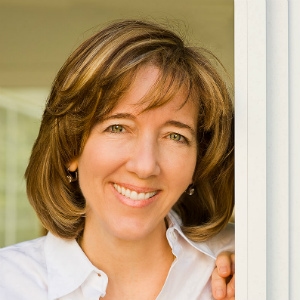In this blog post, Kelly Dorfman, MS, LND, explains why nutrition is helpful for autism, ADHD, SPD and other developmental delays.
An astounding study found a strong correlation between nutrient status and better performance on difficult visuo-spatial and abstraction tests. In the study, present or past intakes of protein, vitamins B-1, B-2, B-6, B-12, E, C, folate, and niacin were all related to intellectual performance in healthy, elderly individuals.
If aging adults can improve visual and abstract intellectual functioning simply by eating better and taking supplements, is it not logical that the same would be true for children struggling to develop these skills?
Nutrition for Neurodevelopmental Disorders
In many ways the deterioration of mental flexibility and sharpness accepted as part of growing older is similar to the processing sluggishness often seen in children with developmental delays. In one situation, the ravages of aging is the culprit; in the other, a total load of stressors causes the brain to process information slowly or inaccurately. Even in cases of overt brain disease or damage, such as Alzheimer’s, numerous studies have indicated that cognitive function can be improved with specific nutrients.
Only a small intellectual leap is necessary to consider the possibility that a nutrient capable of improving word recall and concentration in memory-impaired adults may also be useful to a child with word retrieval or concentration problems.
When starting a child on nutrient support for the brain, a general, comprehensive, multiple vitamin and mineral is used as a base. The B vitamins and magnesium seem to be particularly important in optimizing neuro-transmission. Dr. Bernard Rimland, founder of the Autism Research Institute, has reported extensively on the use of vitamin B-6 and magnesium in autism. These supplements can also improve brain function in children with other neuro-processing deficits.
Once general nutrient support is in place, specific nutrients can be added depending on the individual situation.
Phosphatidylserine
For those with known neuro-transmission issues, such as delayed myelination, cerebral palsy, concentration or memory impairment, auditory processing delays, phosphatidylserine should be considered. Available in gel caps or liquid, phosphatidylserine is an important structural component of brain cell membranes.
It is found in tiny amounts in numerous foods but concentrates in the brain, making animal brains the best dietary source. Since it is no longer safe to eat animal brains, the prudent way to get significant amounts is through a vegetable-based concentrated supplement.
By increasing the release of many neurotransmitters, including dopamine and acetylcholine, phosphatidylserine may speed up mental processing without causing the hyperactivity that sometimes accompanies substances that stimulate the release of a single neurotransmitter.
The drug Ritalin, for example, is thought to target dopamine. While this effect generally increases focus, driving up dopamine alone also escalates obsessive compulsive behaviors (such as tics) and arousal, causing poor sleep.
Phosphatidylserine, on the other hand, can more gently enhance cognitive function through its structural role in the brain. A typical result may be a child who requires less prompting to speak or a teenage who improves the ability to remember assignments and directions.
An average dosage of phosphatidylserine for children is 100-200 mg. Vegetable-based phosphatidylserine often is derived from soy and should be avoided in cases of severe soy allergy. In addition, some phosphatidylserine products are thought to contain tiny amounts of BHT and should not be used by those with known BHT reactivity, although many children on the Feingold diet can use it successfully.
Choline
A nutrient related to phosphatidylserine is choline, found in the body as phosphatidylcholine or as part of the neurotransmitter, acetylcholine. Increased intake of this nutrient may also improve cognitive ability. Choline (as phosphatidylcholine) is the primary active ingredient in lecithin. Food sources include fish, eggs and soy products.
Cholinergic neurons (nerve cells acted on by acetylcholine) are located throughout the brain in areas that control memory, intellect, emotions, movement coordination and muscle contraction.
While supplemental choline can be useful, it occasionally increases the activity (and therefore, agitation level) of some children. Whether the child’s difficulties are due to a known, discrete cause or to general developmental delays, nutrient therapy accelerates brain function and makes adjunct therapies work better.
About Kelly Dorfman MS LND
Kelly Dorfman is one of the world’s foremost experts on using nutrition therapeutically to improve brain function, energy and mood. Kelly’s special talent for integrating information from many sources and finding practical solutions has made her a popular speaker and workshop leader. She lectures extensively and is a member of Platform (formerly the National Speakers Association) and has been featured on numerous television programs including CNN’s American Morning.
Kelly’s award winning book, Cure Your Child With Food: The Hidden Connection Between Nutrition and Childhood Ailments (formerly known as What’s Eating Your Child) was given rave reviews by Publishers Weekly and the Washington Post.

As a go-to expert on nutrition issues, Kelly is frequently interviewed and quoted in the media. She has been featured in articles in The Wall Street Journal, Parade, Bethesda magazine, Living Without magazine, and the Huffington Post.
Kelly holds a master’s degree in nutrition/biology and is a licensed nutrition dietitian. She is a co-founder of Developmental Delay Resources, which has merged with Epidemic Answers. You can find out more about Kelly and her practice at kellydorfman.com
Still Looking for Answers?
Visit the Epidemic Answers Practitioner Directory to find a practitioner near you.
Join us inside our online membership community for parents, Healing Together, where you’ll find even more healing resources, expert guidance, and a community to support you every step of your child’s healing journey.
Sources & References
Adam, G., et al. The influence of choline treatment on behavioral and neurochemical autistic-like phenotype in Mthfr-deficient mice. Transl Psychiatry. 2020 Sep 18;10(1):316.
Boyle, N.B., et al. The Effects of Magnesium Supplementation on Subjective Anxiety and Stress-A Systematic Review. Nutrients. 2017 Apr 26;9(5):429.
Gabis, L.V., et al. Improvement of Language in Children with Autism with Combined Donepezil and Choline Treatment. J Mol Neurosci. 2019 Oct;69(2):224-234.
Hamlin, J.C., et al. Dietary intake and plasma levels of choline and betaine in children with autism spectrum disorders. Autism Res Treat. 2013;2013:578429.
Jadavji, N.M., et al. B-vitamin and choline supplementation increases neuroplasticity and recovery after stroke. Neurobiol Dis. 2017 Jul;103:89-100.
Langley, E.A., et al. High maternal choline consumption during pregnancy and nursing alleviates deficits in social interaction and improves anxiety-like behaviors in the BTBR T+Itpr3tf/J mouse model of autism. Behav Brain Res. 2015 Feb 1;278:210-20.
La Rue, A., et al. Nutritional status and cognitive functioning in a normally aging sample: a 6-y reassessment. Am J Clin Nutr. 1997 Jan;65(1):20-9.
Li, Y., et al. Association between MTHFR C677T/A1298C and susceptibility to autism spectrum disorders: a meta-analysis. BMC Pediatrics. 2020(20)449.
Essential elements in depression and anxiety. Part I. Pharmacol Rep. 2014 Aug;66(4):534-44.
Resseguie, M.E., et al. Aberrant estrogen regulation of PEMT results in choline deficiency-associated liver dysfunction. J Biol Chem. 2011 Jan 14;286(2):1649-58.
Rossignol, D.A., et al. Cerebral Folate Deficiency, Folate Receptor Alpha Autoantibodies and Leucovorin (Folinic Acid) Treatment in Autism Spectrum Disorders: A Systematic Review and Meta-Analysis. J Pers Med. 2021 Nov 3;11(11):1141.
Sartori, S.B., et al. Magnesium deficiency induces anxiety and HPA axis dysregulation: modulation by therapeutic drug treatment. Neuropharmacology. 2012 Jan;62(1):304-12.
Skripuletz, T., et al. The choline pathway as a strategy to promote central nervous system (CNS) remyelination. Neural Regen Res. 2015 Sep;10(9):1369-70.
Zeisel, S.H. Choline: Critical Role During Fetal Development and Dietary Requirements in Adults. Annu Rev Nutr. 2006;26:229-50.




